On May 3, 2023, 25 women, representing 14 communities across the rural Trojes region of Honduras, came together to embark on a learning opportunity that would transform their lives and open new doors of opportunity.
The women’s training program is an initiative of PWW, the Municipal Office for Women in Trojes, and UNICEF, implemented under the framework of the LIFE-Honduras Consortium (learn more) to strengthen local capacity and provide hygiene products to support human response needs in local migration shelters. The program comprises six workshops that took place over three months, from May 3-July 29.
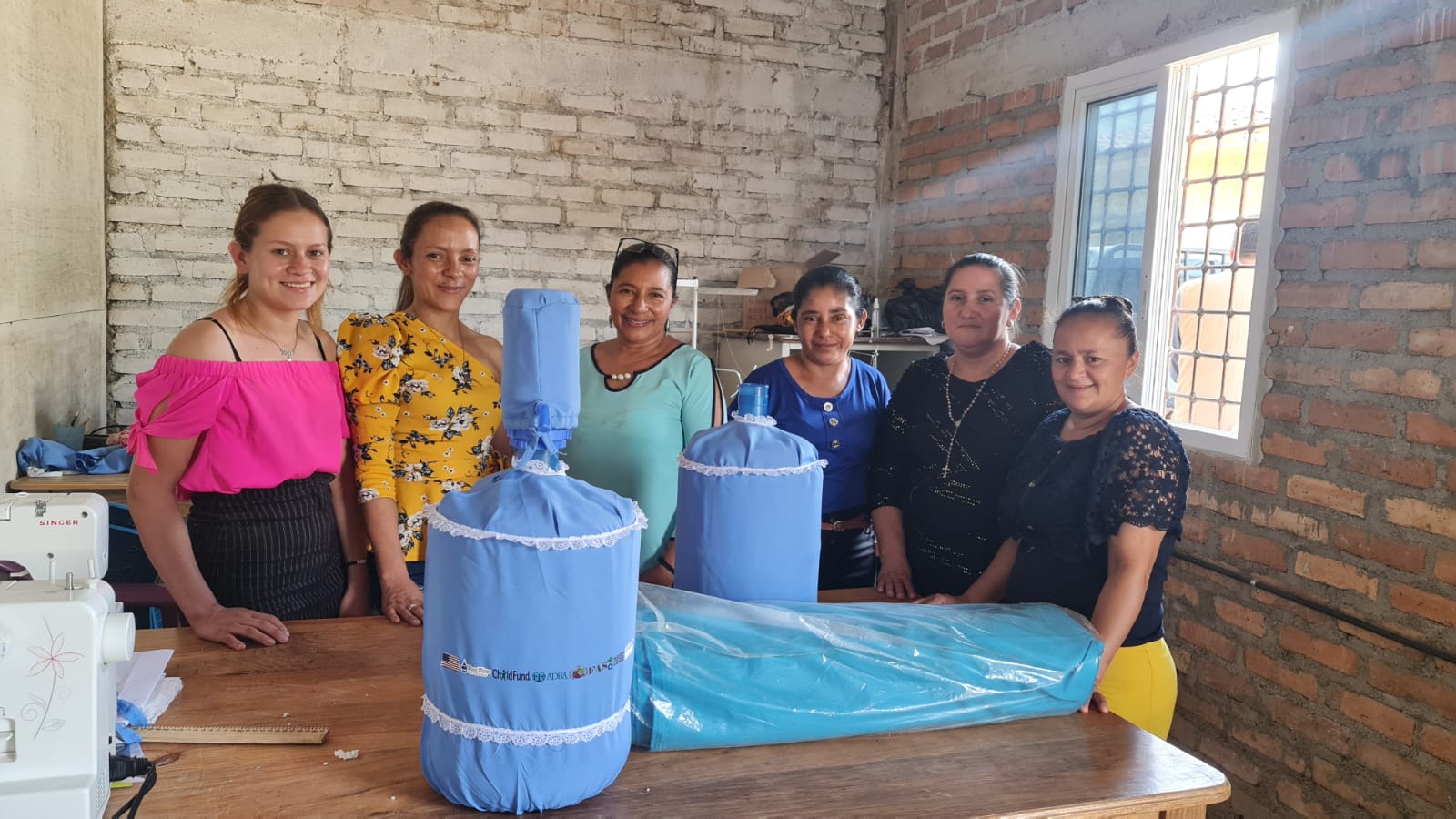 The program was created in response to women who had expressed an interest in learning how to sew as well as learn more about healthy water, sanitation and hygiene (WASH) practices, including household water treatment, safe water storage, and menstrual hygiene management (MHM). The women came together with a common desire to improve their lives and learn new skills that will empower them to create a positive impact in their families and society.
The program was created in response to women who had expressed an interest in learning how to sew as well as learn more about healthy water, sanitation and hygiene (WASH) practices, including household water treatment, safe water storage, and menstrual hygiene management (MHM). The women came together with a common desire to improve their lives and learn new skills that will empower them to create a positive impact in their families and society.
Workshops were held in a community space in Trojes that has five sewing machines. The women learned critical WASH practices and gained valuable hands-on experience using the sewing machines to make reusable menstrual pads, impermeable underwear (designed to support menstruation), and covers for safe water storage bottles. The covers insulate the filtered water, keeping it cool, and prevent contamination, promoting better hygiene.
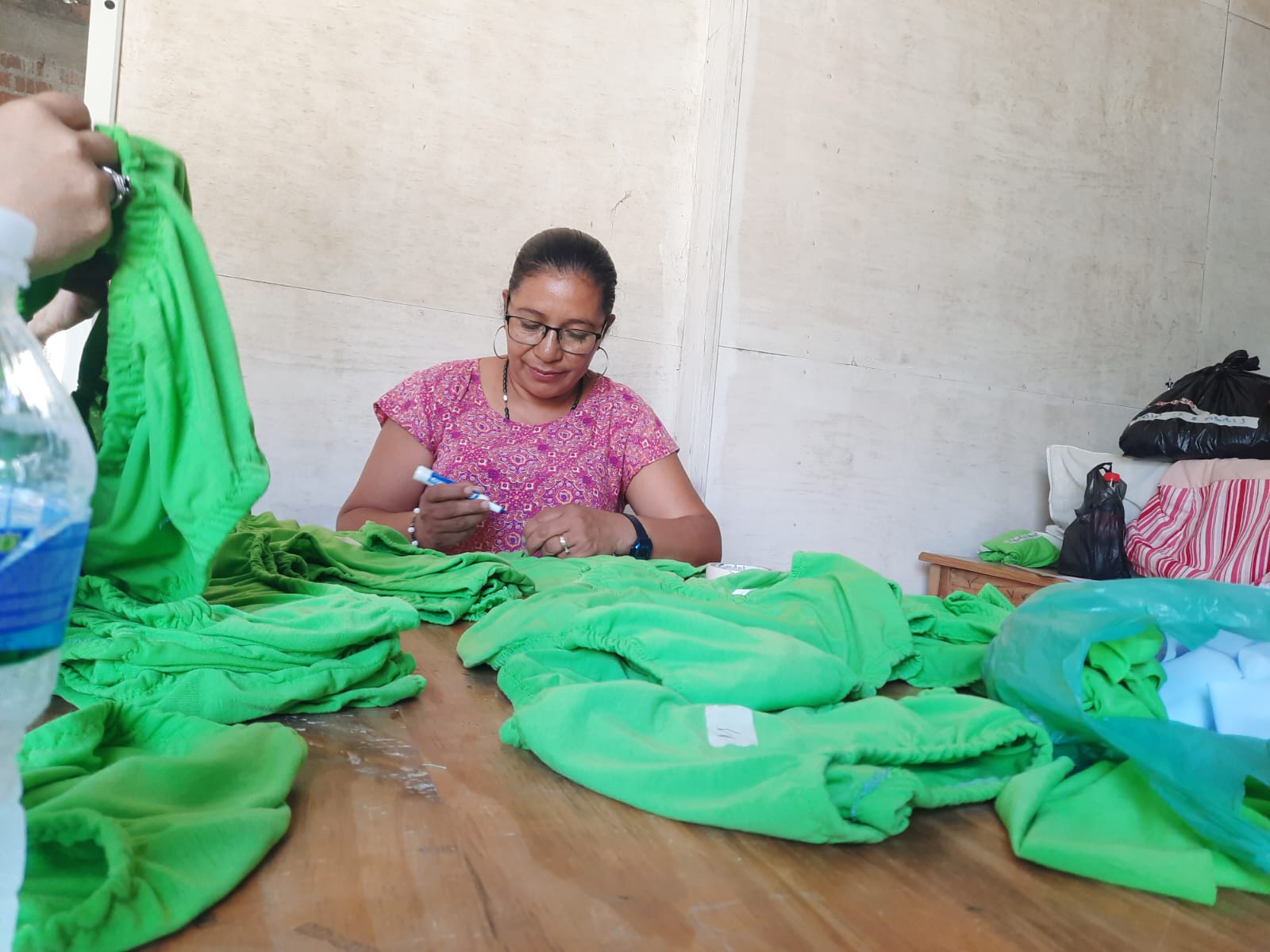
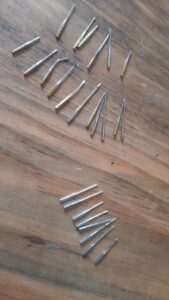 Nely Figueroa (pictured), the sewing instructor, is a very talented seamstress from the local community of Cifuentes. She has dreamed of teaching her craft to others. In preparation for the sewing workshops, Nely had to learn how to make the underwear and the water bottle covers. She spent a week working alongside Karla Vargas, PWW Health Promoter (and a talented seamstress herself!). Together, they created patterns and established lesson plans. Nely also had to learn how to use the industrial sewing machines and serger needles so she could teach the students.
Nely Figueroa (pictured), the sewing instructor, is a very talented seamstress from the local community of Cifuentes. She has dreamed of teaching her craft to others. In preparation for the sewing workshops, Nely had to learn how to make the underwear and the water bottle covers. She spent a week working alongside Karla Vargas, PWW Health Promoter (and a talented seamstress herself!). Together, they created patterns and established lesson plans. Nely also had to learn how to use the industrial sewing machines and serger needles so she could teach the students.
As students participated in the workshops and honed their skills, the women learned (and recognized) the importance of effectively addressing menstrual hygiene. With extensive experience delivering reusable menstrual product training, Karla taught the women how to craft the washable and eco-friendly sanitary pads and underwear, designed specifically to prevent menstruation stains while providing comfort and confidence to women during their periods.
Nohemi, a spirited and resourceful woman, acknowledged the tremendous potential of producing reusable menstrual products to prevent the stigma surrounding menstruation in their society and community.
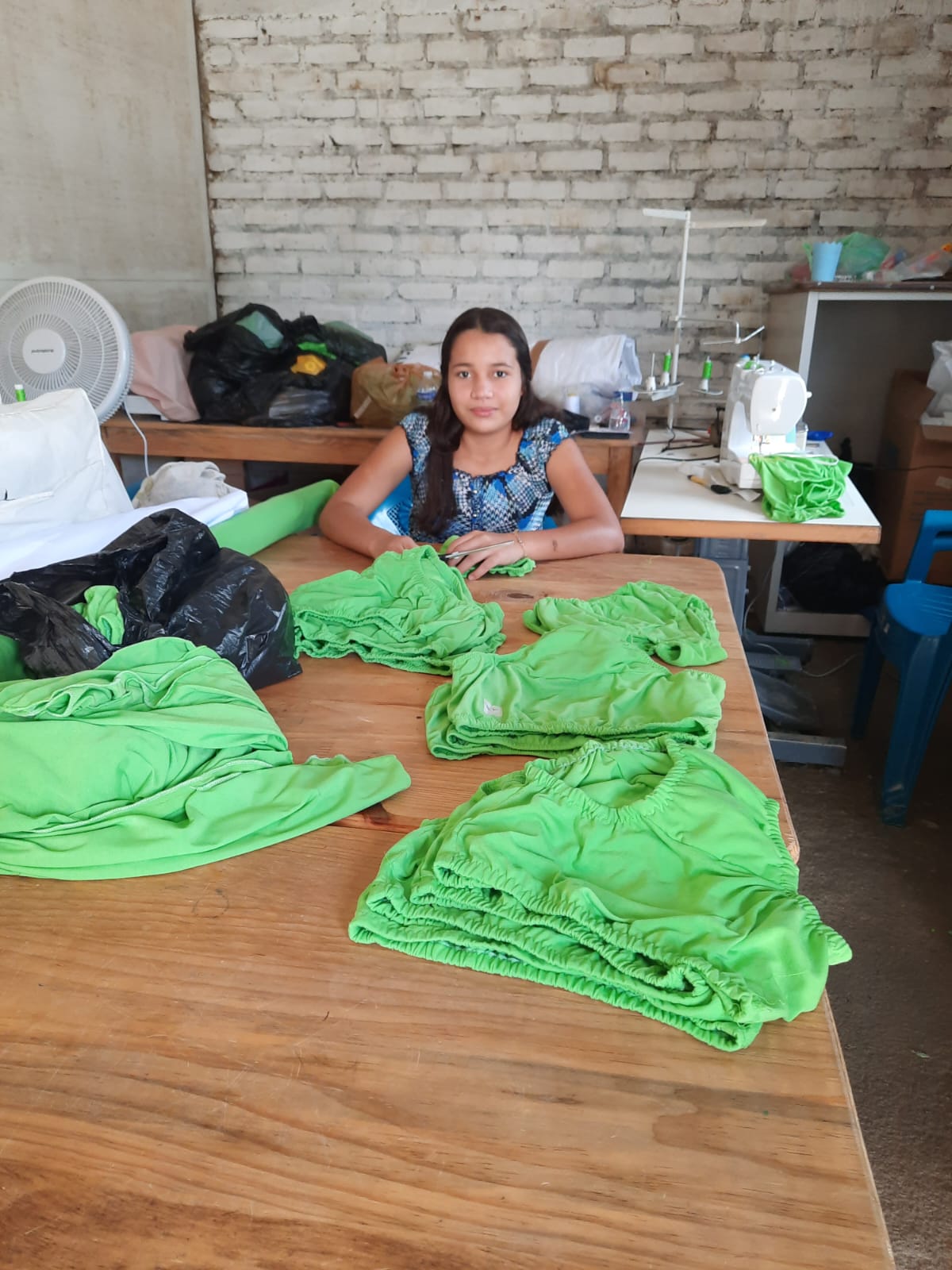
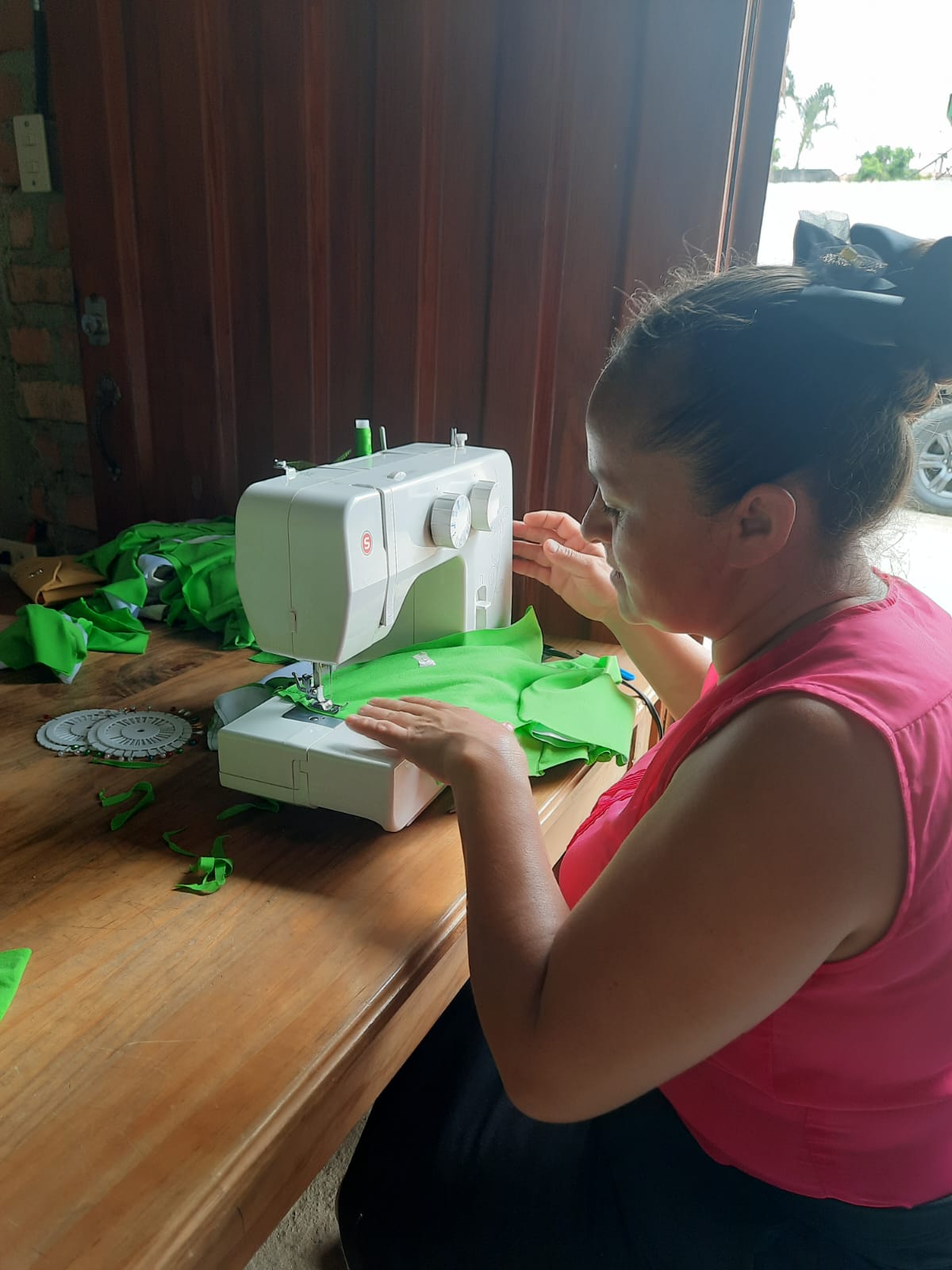
As graduation day arrived, the students were filled with excitement and determination. They expressed the desire to form a women’s sewing cooperative, pooling their skills, knowledge, and experiences. They are calling their cooperative Hilos de Unidad – Threads of Unity.
The women faced numerous challenges as they embarked on this learning experience. Many had arduous journeys, up to three hours of walking then hiring transportation for the final distance, to get to the course. Some of the women encountered skepticism from fellow community members, who questioned their motives and traditional gender roles. Some were unable to complete the full series due to personal difficulties. For the 17 who were able to complete the course, it was their strong determination and passion that inspired them to push through challenges. “It was worth every drop of sweat!” they exclaimed.

“This has being one of my biggest challenges,” Nely shares. Fueled by the motivation and inspiration of her students, Nely recently found a place near her home to host her own workshops and is exploring opportunities to continue teaching with the Municipality, working to fulfill a dream of starting her own business.
Threads of Unity is currently in its initial ‘dream’ status. The women have set goals to secure enough funding to start up their micro-business. They are already gaining popularity and respect among their villages, as people are recognizing the benefits of their products, both in terms of hygiene and environmental conservation. Some of the women are also beginning to receive orders from neighboring communities, expanding their impact.
The group’s rapid success has also garnered attention from local NGOs and government agencies, and women have been invited to share their experiences and knowledge so that this model can be adopted in other regions too.
The women of Threads of Unity have gained valuable skills and discovered the strength in unity and the power of a shared vision. They have proven that when women from different backgrounds come together, they can create a force of change that ripples far beyond their community.
And so, the story of Threads of Unity is beginning to spread, as seeds of hope and opportunity, inspiring women and communities to come together, embrace diversity, and collaborate for a brighter and more sustainable future.
Special thanks goes out to the Municipal Office of Women in Trojes. Thank you also to the LIFE-Honduras Consortium for providing the funds for this workshop series and to CEPUDO for supporting the materials.
